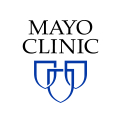A Rehabilitation Intervention for Amnestic Mild Cognitive Impairment
| Status: | Completed |
|---|---|
| Conditions: | Cognitive Studies |
| Therapuetic Areas: | Psychiatry / Psychology |
| Healthy: | No |
| Age Range: | Any |
| Updated: | 11/11/2012 |
| Start Date: | October 2010 |
| End Date: | April 2013 |
| Contact: | Melanie Greenaway, PhD |
| Email: | mcgree3@emory.edu |
| Phone: | 404-728-4936 |
A Multicenter Rehabilitation Intervention for Amnestic Mild Cognitive Impairment
Mild Cognitive Impairment (MCI) is often an early manifestation of Alzheimer's disease (AD).
The ability to identify MCI has led to hope that health prevention models might work in AD
as they have in cancer and heart disease. Interventions which help sustain functioning in
MCI may delay progression to a clinical AD diagnosis. To date, interventions aimed at
maintaining functioning in MCI have been pharmacologic in nature. The efficacy of these
medications in MCI is controversial, and those with MCI are also often interested in other
activities they can do to manage their memory loss.
When an individual is noted to have memory difficulties or MCI, a recommendation is often
given for the patient to begin taking notes/using a calendar to help with memory or do
cognitively stimulating activities. However, there is currently little instruction about
how/what specific activities one should do and how effective they may be. The overall goal
of this pilot project is to refine delivery of the Memory Support System (MSS)as a formal
compensatory program for memory loss in MCI. Enrollment and retention data will be carefully
investigated across 6 week and 10 day intervention groups. The investigators will compare
participant adherence to the notebook training in the 6 week and 10 day versions of the
intervention to the computer activity group. The investigators will also collect data on the
clinical efficacy of the notebook and computer training to investigate if these
interventions can sustain/improve functional level. Long term goals for this project also
include delaying relocation for persons with MCI who may progress to dementia, thus not only
improving the lives of these individuals, but also reducing health care expenditures.
The investigators will recruit a total of 60 individuals with MCI and their 60 program
partners across all three sites for this project. At least 16 of these pairs will be
recruited at Emory University (maximum of 20 pairs/40 individuals anticipated). The
investigators will randomly assign participants to the 6 week notebook or computer training
or 10 day notebook or computer training. All participants will also receive patient
education regarding MCI and cognitive health.
Subsequent compliance with the MSS will be examined at 3 months, 6 months, and then annually
following the intervention. Outcome measures will provide a detailed, multi-modal assessment
of participants' functional level, overall cognitive functioning, mood, and self-efficacy,
as well as caregiver burden and mood.
Inclusion Criteria:
- Enrolled as a research participant in the Alzheimer's Disease Research Center with a
consensus diagnosis of amnestic Mild Cognitive Impairment (MCI: single domain or
multi-domain).
- Has a program partner that has at least twice weekly contact with the participant
- Dementia Rating Scale-2nd Edition (DRS-2) score of 115 or greater
- Functional Ability Questionnaire (FAQ) score below 6.
- Program Partner with Mini Mental State Exam (MMSE) of 24 or greater. (If a program
partner has an MMSE less than 24, the site PI will recommend that the person seek
further evaluation of cognition through their primary care physician. The person with
MCI will be encouraged to find an alternate program partner.)
- Either not taking or stable on nootropic(s) for at least 3 months
- Has English as primary language
Exclusion Criteria:
- Diagnosis other than amnestic MCI (single domain or multi-domain)
- Visual/hearing impairment or history of reading/writing disability sufficient to
interfere with training
- Inclusion in another clinical trial that would exclude participation. Subject will be
considered for participation at the end of such a trial or as appropriate.
- Baseline score on the self-report depression measure suggesting severe depression for
either the participant or the program partner (>21 on the Centers for Epidemiological
Studies - Depression Scale (CES-D) and need for psychiatric treatment. (If a patient
or program partner has a CES-D greater than 21, the site Principal Investigator will
rule out suicidal ideation and then recommend that the person seek further evaluation
of mood from their primary care physician, psychiatrist, or other mental health
practitioner. If they seek treatment and have been stable on that treatment for 3
months, they would then be allowed to be reconsidered for the study.)
We found this trial at
3
sites
Mayo Clinic Rochester Mayo Clinic is a nonprofit worldwide leader in medical care, research and...
Click here to add this to my saved trials
Emory University Emory University, recognized internationally for its outstanding liberal artscolleges, graduate and professional schools,...
Click here to add this to my saved trials
Mayo Clinic Scottsdale Mayo Clinic Arizona was the second Mayo practice to be established outside...
Click here to add this to my saved trials


